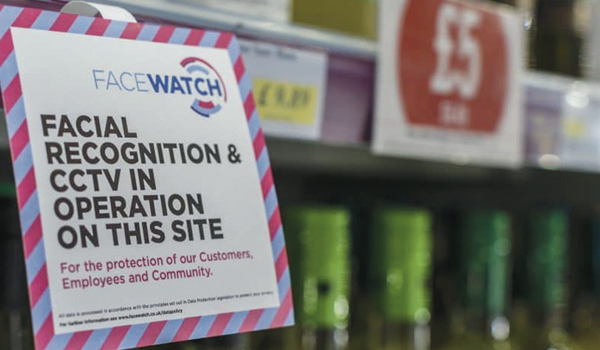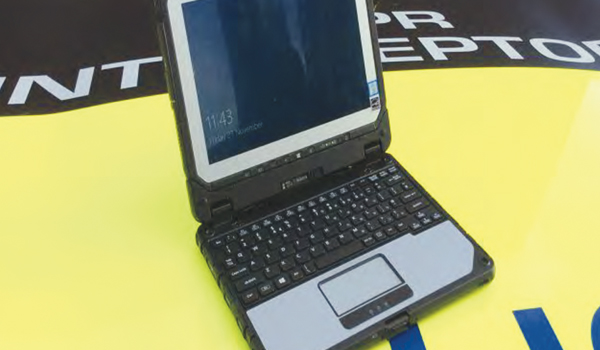Facewatch facial recognition system fully compliant with data protection legislation, says ICO
A formal assessment by the Information Commissioner’s Office (ICO) has concluded that the use of live facial recognition technology by retailers is fully compliant with UK data protection law.
The cloud-based technology is provided to the retail sector by security company Facewatch, and aims to help businesses protect their customers, staff and stock from criminal acts.
The system scans people’s faces in real-time as they enter a store and alerts if a “subject of interest” has entered.
Facewatch says its facial recognition system is proven to “stop crime before it happens” and can reduce business theft by at least 35 per cent in the first year.
In July last year, privacy campaigners had mounted a formal complaint against the use of Facewatch’s system in 35 Co-Op branches across the south of England.
Following its judgment, the ICO said: “Innovative solutions helping businesses prevent crime is in the public interest and a benefit to society.
“Data protection law recognises this, allowing personal information – in this case facial images – to be used if there is a legitimate interest, such as for the detection and prevention of crime.
“However, this benefit must always be balanced against the privacy rights of the individual.”
The ICO’s decision comes as report into the use of facial recognition by the Metropolitan Police Service and South Wales Police found the technology does “not breach equality requirements”.
The research published the National Physical Laboratory on April 5 confirmed that the way in which the technology is used does not discriminate on the grounds of gender, age or race (see https://www.policeprofessional.com/ news/facial-recognition-technology-does-not-breach-equality-requirements-report-finds/).
Stephen Bonner, the ICO’s Deputy Commissioner for Regulatory Supervision, said throughout its investigation it considered whether Facewatch complied with data protection legislation.
“While we agreed the company had a legitimate interest in using people’s personal data, we identified various areas of concern,” he said.
“In response to our concerns, Facewatch made, and continues to make, improvements to its product.
“These include reducing the personal data they collect by focusing on repeat offenders or individuals committing significant offences; improving their procedures by appointing a data protection officer; and protecting those classified as vulnerable by ensuring they do not become a ‘subject of interest’.
“Based on the information provided by Facewatch about improvements already made and the ongoing improvements it is making, we are satisfied the company has a legitimate purpose for using people’s information for the detection and prevention of crime.
“We’ve therefore concluded that no further regulatory action is required.”
However, Mr Bonner stressed that the decision “does not give a green light to the blanket use of this technology” and the ICO will continue to monitor the evolution of live facial recognition technology to ensure its use remains “lawful, transparent and proportionate”.
He said this will build on the ICO’s “existing work in this space”, including the use of live facial recognition technology in public places by the police.
The retail sector is arguably the most advanced in the use of intelligence to influence security decisions. By introducing technology such as facial recognition and business intelligence software, retailers have been able to gather data on incidents, enabling more in-depth analysis of risks.
This data is can then be fed into a dedicated security operations centre, which captures and analyses the intelligence and provides a vital link between retailers and the police to conduct joint operations targeting prolific offenders or organised crime groups (OCGs).
Speaking at last year’s Emergency Services Show, Helen Clayton, head of crime and security at Sainsbury’s, said prolific offenders and even OCGs were being seen in shops more – and stealing more – which in turn is leading to more violence.
According to the latest data from the British Retail Consortium, there are more than 850 incidents of violence and abuse carried out on retail workers every day.
Ms Clayton said staff use of body-worn video cameras was also helping to reduce the risk of crime and threat of violence.
The ICO judgment followed the recent awarding of the Biometrics and Surveillance Camera Commissioner’s certification mark to the Facewatch system for “meeting requirements for the use of live facial recognition”.
Commissioner Professor Fraser Sampson said: “By successfully engaging with the professional accreditation bodies and my certification scheme, an organisation, and more importantly the public, may be reassured that surveillance camera systems which intrude upon their privacy are being demonstrably operated ethically and legitimately to an appropriate standard… in a way that the public would rightly expect and to a standard that maintains public trust and confidence.”
Facewatch chairman Nick Fisher said: “The ICO judgment and Biometrics Commissioner award underlines our commitment to best practice, both to prevent crime and protect staff and customers.”






